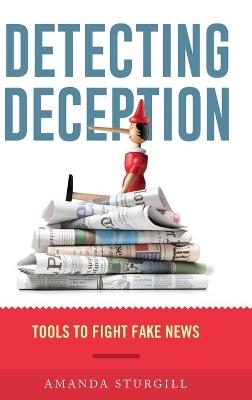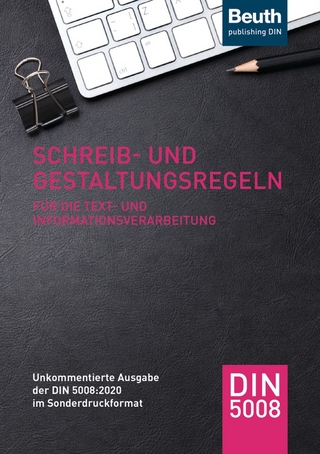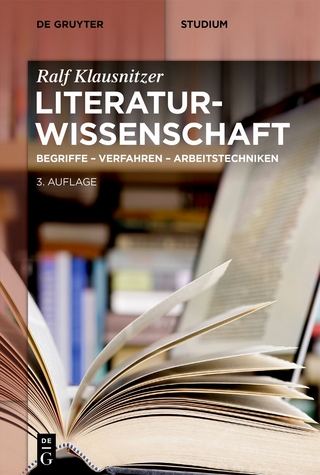
Detecting Deception
Rowman & Littlefield (Verlag)
978-1-5381-4102-1 (ISBN)
Teaching fact checking and verification is an essential part of journalism education. When a confusing media environment makes it possible for interviewees to say things like “Truth is not truth” and “The president offered alternative facts,”students need to go beyond traditional reporting standards and be trained to consider the presentation of reality in deciding if a statement is misleading or patently false. Detecting Deception brings the concepts of logical argument taught in speech communication to supplement the verification techniques that are the stock and trade of any media professional. Pithy and practical, Sturgill draws from present day news examples to help students recognize the most common bad arguments people make. Detecting Deception is an essential tool for training future journalists how to build stories that recognize faulty arguments and hold their subjects to a higher standard.
Features:
-engagingly written by a reporter turned professor
-classic and current examples of logical fallacies from speeches, press conferences and reports
-each chapter will have two illustrations/cartoons to help students grasp concepts and easily remember faulty argument structures
-short and flexible for use as a supplement in the classroom or on the resource shelves of the newsroom
Amanda Sturgill is an associate professor of journalism at Elon University, where she teaches classes in writing, copy editing, media analytics and digital strategy to undergraduate and graduate students. A self-described critical thinking maven, her students leave the university with a strong appreciation for the vital role of accurate and honest communication in free societies. Amanda was trained in the doctoral program at Cornell University and has gone on to publish communication technology and media and religion work in a variety of outlets. She was an editor on the two-volume Religion Online: How Digital Technology Is Changing the Way We Worship and Pray and an associate editor for The Golden Age of Data: Media Analytics in Study and Practice. She has a special interest in the scholarship of teaching and learning and, in particular, the integration of high-impact teaching practice in professional fields like journalism. She has run an international pedagogy research seminar, co-edited Mind the Gap: Global Learning at Home and Abroad and is an active member and presenter with the International Society for the Scholarship of Teaching and Learning. She presently chairs the Standing Committee on Teaching and sits on the board of directors of the Association for Education in Journalism and Mass Communication.
Introduction – An introduction the problem of people trying to mislead the public, followed by a description of techniques for general critical thinking including breaking statements into premises and conclusions.
Things to look for – This will be the majority of the book, consisting of multiple short chapters. Each chapter will describe the issue, explain why it is an issue, offer an example with analysis drawn from existing news stories from a variety of topics and times and then offer an example without analysis for consideration or for instructors to use as an assignment.
Problems with how people think
Arguing about the person instead of the idea (The Ad Hominem)
Arguing against something no one actually said (The Straw Man)
Don’t be a hypocrite! (Tu Quoque)
Look! Squirrel! – Arguing by distraction (The Red Herring)
There are only two things that could happen (The Black and White)
And you’ll end up living in a van down by the river… (The Slippery Slope)
One rotten apple spoils the barrel (The Fallacy of Fallacies)
Apples to oranges (Faulty Analogies)
Cool. Don’t care. (Irrelevant Conclusions)
I saw a thing once. (Hasty Generalization)
All the children are above average. (The Division Fallacy)
Great players must make a great band. (The Composition Fallacy)
(Begging The Question)
(No true Scotsman)
Problems with what people say
If you loved me… (The Appeal To Pity)
Agree or else (The Appeal to Force)
No one has proved you can’t, so… (The Appeal To Ignorance)
I’m not a doctor, but… (The Appeal To Authority)
We’ve always done it this way. (Appeal To Tradition)
A lot of people agree. (The Appeal To Popularity)
The sky is green. (The Big Lie)
Problems with numbers
It’s a percent of what? (Ignoring The Base Rate)
Spider bites and spelling bees (Correlation Is Not Causation)
Rabbit feet and lucky rocks (Lurking Variables)
The difference that doesn’t matter (Unnecessary Precision)
It’s not actually that likely (Naïve Probability)
Bigger isn’t necessarily better (Lying With Charts)
When a difference isn’t really a difference (Misinterpreting Polls)
| Erscheinungsdatum | 10.05.2021 |
|---|---|
| Verlagsort | Lanham, MD |
| Sprache | englisch |
| Maße | 161 x 229 mm |
| Gewicht | 431 g |
| Themenwelt | Geisteswissenschaften ► Sprach- / Literaturwissenschaft ► Literaturwissenschaft |
| Sozialwissenschaften ► Kommunikation / Medien ► Journalistik | |
| ISBN-10 | 1-5381-4102-7 / 1538141027 |
| ISBN-13 | 978-1-5381-4102-1 / 9781538141021 |
| Zustand | Neuware |
| Informationen gemäß Produktsicherheitsverordnung (GPSR) | |
| Haben Sie eine Frage zum Produkt? |
aus dem Bereich


